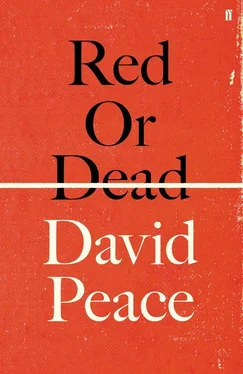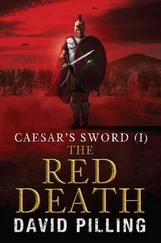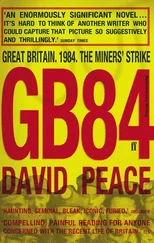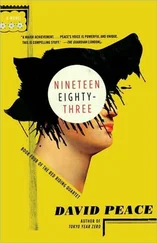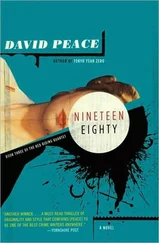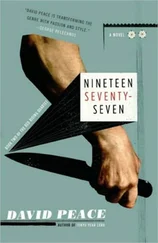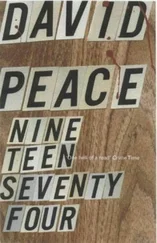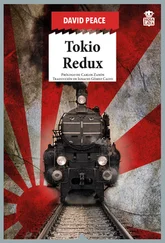Yes, yes.
And I suddenly said, a fortnight ago, I’ve got it all wrong. I want to treat questions like football now. If they want to score a goal, let them score a goal, I’ll go out and try and score two. And it’s slightly changed my attitude. And it’s also making the Question Time more exciting.
And you think this is advantageous?
Harold Wilson nodded. And Harold Wilson said, I think, if you think in sporting analogies, it helps you in other walks of life. You have a problem I don’t have in the same way. But the jobs are similar in many ways. I went into the dressing room after a Huddersfield match. Huddersfield had won. They had played very well. So had the others, too. And I saw the manager talking to them. Although they’d won and he said they played marvellously, but he said, That marking was wrong. He said, Those little ones, you should mark the little ones. And let the big ones mark the big ones. I’ve often wondered what was said in dressing rooms. It was the first time I’d ever been in one. And I was in the Scottish one just after Frankfurt, you know?
Yes, said Bill Shankly. Ah yes.
In the World Cup. I went to see them when … well, I hoped they were going to pile up all the goals they needed, and they didn’t. But it must be hard when your team has done badly and they know it, and you know it, to know exactly what to say to them.
Oh, it’s a terrible feeling, said Bill Shankly. I mean, you know what it’s like in politics if something goes wrong? I mean, it’s a terrible feeling if you’ve had a bad day and you’ve got beaten.
Harold Wilson nodded again. And Harold Wilson said, And the first minute when you go in there, what do you say?
Oh, the first minute after it, said Bill Shankly. I mean, you may have something to say …
You can’t chew them up too badly. Or you’ll break their hearts.
No, no, said Bill Shankly. No. It’s all psychology. I mean, what you have got to do is, you’ve got to know your Cabinet. You know all of these men in your Cabinet. You know their strengths and their weaknesses. I have got to know all these players. And I deal with them the way I think. One needs to be spoken to strongly, one needs a little handling. You know all your Cabinet and I know all my players.
You know what they’ll take …
You know what is best for them, said Bill Shankly.
I think another thing with your job and mine. You’ve got certain people. Some are very, very good at this particular thing or that particular thing. And so I sometimes alter the system of government, the machinery of government, to make sure that a flyer of this particular kind can really develop on that side, so to speak, just as if you’ve got — well, let’s not talk about any local footballers — but we were chatting the other night about Ray Wilson, who went from Huddersfield to Everton. Now if you’ve got a Ray Wilson there, you will develop, I guess, a particular style of play and tactics to make the greatest use of him …
Great, said Bill Shankly. Great.
If you’ve got somebody like Leighton James of Burnley — who, I think, he’s a real, good old-fashioned winger of the kind I was brought up to respect and admire and cheer — then, in his case, I can imagine Burnley would build their tactics round a man like that, whereas, if they didn’t get him, they’d be doing different tactics.
Mr Wilson, laughed Bill Shankly, you’re going to be a manager of a football team soon …
Harold Wilson shook his head. And Harold Wilson said, I don’t think I’d do it very well.
Because your tactics are right!
I’d rather be an amateur watcher of it.
But you played yourself at what level, Mr Wilson?
Oh, I was a goalkeeper in Huddersfield. I was a goalkeeper. I wasn’t very good. I had a year off then because I had typhoid fever. And they didn’t have the cures for it that they have these days. And then I went onto the wing. But shortly afterwards, as I say, I went to a rugby school. And the only thing I could do was run fast. And if I got the ball, I’d make for the goal line. Sometimes successfully …
Well, said Bill Shankly. I mean, there’s another piece of your character coming out. Cross-country, the typhoid …
Harold Wilson nodded. And Harold Wilson said, I was camping at a Boy Scouts’ camp. We had a local one, you know? We lived in the kind of textile valley. And it was up on the moors. We had an arrangement with the farmer who owned it. And I bought some milk from a local farmer, a milkman, who turned out to be a typhoid carrier. Twelve people got it. Six of them died. And I nearly did. And I lost nearly a year of my school.
You didn’t die, said Bill Shankly. You didn’t nearly die at all. Because you didn’t. Because you weren’t going to die …
Well, I didn’t know how bad I was, actually.
No, said Bill Shankly. No, no.
They had to starve you out, you see, for many months. But I had a wonderful schoolmaster, a maths master. He never had a degree. And he was always in a bit of trouble. And he was a great socialist. I owe more to him than to almost anybody, in this way. And he was the maths master. I missed so much maths, over two terms. He said, If you are prepared to stay an hour a day after school, I am. And he said, I’ll bring you up to date. And it was the happiest day, I think, he ever had in my time. And he was in tears when he told them that I’d finished third in the form in the maths exam …
That’s fantastic, said Bill Shankly. Fantastic.
And I’ll always owe that to him.
So the fact that the typhoid retarded you … I mean, you gained again. You were behind in the marathon and you made it up.
Harold Wilson nodded again. And Harold Wilson said, It was a challenge. And there were a lot of young masters at Wirral School. It was a new school. Apart from the head, there was nobody over thirty. And there was a wonderful chap taught classics. And he was a very good rugby player and cricketer. Played for Leicestershire seconds. And he was an example. He was killed at the age of twenty-seven, just only been appointed headmaster. Killed in the Lake District, climbing. Or walking, really. But he made an impression on everybody.
You see, said Bill Shankly, if you look at all the men, such as you, who have reached the peak of your careers … I mean, they all had setbacks, Mr Wilson …
Setbacks?
Without setbacks, you don’t know what trouble is, do you? You don’t know how to fight back!
Harold Wilson laughed. And Harold Wilson said, I had mine when I was relegated in 1970. You know, when we lost the election. And many people thought we were going to win. I wasn’t so sure. And I had to set out and build it all up again. Keep the team together first, keep the team together. Don’t let them get disheartened.
That’s the thing, said Bill Shankly.
But that was a harder task, getting back, than actually running the government before. It’s harder to be leader of a big national party in opposition than when you’ve got the responsibility of government.
So you say to me, How does it feel when you get beat in a big match? I mean, how does it feel when you lose the election?
Harold Wilson said, When you get relegated, yes.
But, in actual fact, vote-wise, I mean, there’s more socialists than there are anybody else. But still you lose the election?
There’s a lot of estimates …
I mean, how come, Mr Wilson, that a man can vote one way then change his mind?
Harold Wilson shrugged. Harold Wilson smiled. And Harold Wilson said, But they do. And sometimes they vote for personalities as well as policies. I read somewhere that, basically, people are committed Labour people, more than Conservatives. And of course, more young people are coming on that way. But they change from time to time. They get fed up with the government, like supporters get fed up with a team. And I think that’s what’s happened. I’ll tell you, though, I was listening to the World Cup that Sunday night. The Sunday before. And we were winning two — nil, with about twenty minutes to go. And when I heard we lost three — two, I thought there’d be an effect. And I did hear there were a lot of voters saying, Oh, I can’t stand anything after this. You know, it affected them. I think it had some effect on the election. Not decisive, of course.
Читать дальше
